They're like HomePods for your ears.
The rumors floated around for a few years, but Apple finally dropped the AirPods Max as the December 2020 "surprise," and the AirPods Max pre-orders sold out quickly. The latest AirPods are over-ear premium wireless headphones that bring high-fidelity audio while offering a seamless experience across the board with your Apple gear, as long as you're on the latest software. On paper, this all sounds great, but then you need to consider the price of admission — are all of these features worth the $549 that Apple is asking for?
Now, I want to state that while I enjoy a good pair of headphone cans, I am not what you would call an audiophile by any means. I don't have a multi-thousand dollar rig set up for music and audio, I don't have any experience in playing musical instruments, and I don't have other HiFi headphones like Grados, Sennheiser HDs, or even the popular Sony XM4 or Bose 700. The most expensive headphones I have, other than the AirPods Max, would probably be the older Bose QuietComfort 35 IIs that I bought during Black Friday in 2019. I compared the Bose QC 35 II to the AirPods Pro earlier this year, but it looks like I'll be using it once again to compare with Apple's new over-ear cans, which honestly, would be a better comparison anyway.
I will be approaching this AirPods Max review as someone who was skeptical and wasn't planning to buy a pair. I'm just a regular person who wants a good pair of headphones that are comfortable to wear while sitting at my desk and working on a computer for eight or more hours every day. I want headphones that have great noise cancellation so I can tune out all environmental distractions and focus on my work, but I can also filter noise in if I need to. I want headphones that sound great and really bring out the music that I enjoy listening to. I also want headphones that work seamlessly with all of my iPhones, iPads, and Macs (and Apple TV and HomePods if I had any).
So do the AirPods Max live up to the hype?
AirPods Max
Bottom line: AirPods Max are a premium headphone made for Apple users. The stainless steel and aluminum body is solidly built, but it also means that it's quite heavy, but the fabric headband is comfortable. Sound quality brings out even the smallest details, and the Active Noise Cancellation is even more impressive than AirPods Pro. Transitioning between multiple Apple devices is pretty seamless. The Noise Cancellation button and Digital Crown are easy to reach. The Smart Case has no real "smart" features and is one of the worst things about the AirPods Max.
The Good
- Premium look and feel with solid construction
- Incredible sound quality with Adaptive EQ and Spatial Audio
- Top-notch Active Noise Cancellation with Transparency mode
- Clear sounding microphones
- Fabric headband relieves pressure, comfortable to wear
- Easy to Handoff between multiple Apple devices
The Bad
- Very expensive
- Heavy, not meant to be worn with a lot of movement
- No real way to turn them off, shorter battery life than the competition
- Smart Case is cumbersome, not protective
$549 at Apple $549 at Best Buy
AirPods Max review: From the perspective of a regular person, not an audiophile
For most of the week, I have headphones sitting on my head. I tend to prefer over-ear headphones over in-ear earbuds because they're more comfortable for me and usually do better at tuning out everything else around me, though AirPods Pro are quite impressive on that front. Here's what my typical day looks like with headphones.
I'm reviewing these as a regular person who just likes to use headphones every day. I'm not an audiophile by any means.
When I get to my desk, I immediately put my headphones on and get to work. I like to put music on that isn't too distracting, like the "lofi hip hop music - beats to relax/study to" playlist on Apple Music, a lot of Daft Punk albums, or just enjoy all of The Beatles albums. Having music playing helps me mentally focus on what I need to do for the day, so I end up having headphones on for hours at a time.
Once a week, I have a meeting with the rest of my iMore colleagues, and I have my headphones on with my Blue Yeti Nano mic (one of our top recommendations for best USB microphone for Mac) so that there's no echo. After the meeting, I just go back to my music and writing or editing for the rest of the day.
In the evenings, I like to unwind with podcasts or just watch some television or movies. When it comes to podcasts, I usually put another pair of headphones on or just use my AirPods Pro for the convenience factor. I also mostly watch television and movies on our big-screen TV, but sometimes I'll just prop up my 11-inch iPad Pro and watch it there if my husband is on the PlayStation 5.
As you can see, I have headphones on quite a lot. I always prefer to wear headphones when I can, but for things like phone calls to family and friends, I'll pull out my AirPods Pro. But I'm no audiophile — I'm just a girl who likes some good headphones because they're more comfortable and immersive.
AirPods Max review: Hefty and solid build quality
The AirPods Max cost $549, so these are what you would consider a premium, luxury product (they're $300 more than AirPods Pro). But Apple certainly built these to make sure that they indeed feel premium. You're getting a pair of headphones with a solid, stainless steel frame and aluminum earcups, with a finish that is similar to what you'd find on a MacBook. However, because of the amount of metal in these headphones, they are heavy, and you can definitely feel that when you take them out of the box and put them on your head. AirPods Max weigh 384.8 grams, which is 13.6 ounces. For comparison, my Bose QC 35 II headphones weigh 8.3 ounces.
Yes, the AirPods Max are heavy but surprisingly comfortable once they are on your head. The fabric canopy on the headband helps alleviate pressure at the top of your head, which is nice, but the rigid stainless steel frame helps to keep it in place. After a full day of wear, I don't experience any discomfort. However, the moment I move my head around, I get paranoid that they're going to fall off — I think my head is a little on the smaller size (I've been told the AirPods Max look big on me), and I can feel the AirPods Max slipping around my ears if I move too much.
Speaking of the mesh fabric canopy, I'm a little concerned about its durability over time. It is stretchy to conform to any head but also very thin — I'd be worried about having this near anything sharp because it feels like it could get punctured and rip, though I'm not going to damage $549 headphones to confirm purposefully.
The telescoping stainless steel arms on the AirPods Max are smooth as you pull and push them to adjust the fit. While I always liked to have clicks or notches to tell me what size I need, the arms' smoothness offers more flexibility for finding your exact size. And you don't need to worry about it shifting — it takes a little bit of pressure to adjust the arms, so once you get it in place, it'll stay that way.
The earcups are light and airy thanks to a memory-foam material, and they have a fabric covering. This means that they're more breathable than the leather pads you'll find on other headphones, making them more comfortable in warmer conditions. But keep in mind that these are not meant to be headphones for you to work out in, as they do not have any IPX water resistance. For that, you'll want to check out our AirPods Pro review.
The thing I love the most about the ear cushions is the fact that they are magnetic, so you can simply pull them off to clean. Apple also sells separate ear cushions for $69 (because of course they would), so you can replace them as they wear out over time, or just mix and match to suit your style.
I only have the silver color for the AirPods Max, and I have noticed that my white ear cushions have already gotten a little dirty, and it's only been a few days. Thankfully, you can just pull the cushions off to clean, but I'm not sure how long the lighter colors will hold up at this rate. If you don't like noticing dirt or discoloration on your headphones, I recommend one of the darker colors, like Space Gray or Sky Blue.
AirPods Max review: Fit and comfort with glasses
An important thing to consider before getting AirPods Max is how they feel with glasses. I am near-sighted, and since I don't do contacts, I need to have glasses on pretty much 24/7. This may depend on the types of legs on your own glasses, but I have not had issues with wearing my thick plastic style glasses with over-ear headphones, including AirPods Max.
As long as I already have my glasses on by the time I put the AirPods Max on, there's no issue, and they don't move around too much. But if I have the AirPods Max on without my glasses, then the headphones' stem does interfere with the legs of the glasses, so it's harder to get on.
I found the AirPods Max to be comfortable to wear, even with my glasses. There was no discomfort even after hours of using them, though the AirPods Max do clamp your head a little. Personally, for me, I had zero issues with the overall fit and comfort level with glasses on.
AirPods Max review: The Digital Crown and ANC Button
You will only find two buttons on the AirPods Max: a Digital Crown and another button to toggle the ANC. The Digital Crown is just a bigger version of the dial that you would find on the side of an Apple Watch. Both buttons are placed on the top of the right earcup, going against the usual standard of buttons on the bottom on most headphones. The ANC button is in front of the telescoping arm, while the Digital Crown is in the back.
The Digital Crown can be rotated to adjust the volume level, and by default, it's set to counter-clockwise to turn the volume up and clockwise to turn it down. I found this odd choice since you would turn clockwise on most volume knobs to adjust it louder (I ended up turning my volume down instead of up too many times). I changed this as soon as I found the setting to do so — now I turn the Digital Crown clockwise when I want it louder. You can also press the Digital Crown — once to play/pause (or answer/hang up a call), twice to skip forward, and three times to go to the previous song.
The ANC button is easy to reach and press with a finger. You can switch between the ANC and Transparency mode with this button. If you want the option to turn the ANC off completely with the button, you need to adjust it in the settings.
I thought that the ANC button's placement was excellent and intuitive to reach, but the Digital Crown was a little weird. However, I have gotten used to it by now, so it doesn't feel odd to reach for the Crown. In fact, I now enjoy having such controls at the top of the earcup rather than the bottom because you can activate them with your fingers and not just thumbs. However, if you have longer hair, be warned — your hair may get in the way of the Digital Crown or even be caught up in it.
The only flaw here is that Apple has the Digital Crown set to be counter-intuitive by default. I mean, who turns a dial counter-clockwise to turn volume up?
AirPods Max review: Sound quality
The moment of truth has arrived. AirPods Max are $549, so they need to sound incredible to possibly be worth that much dough. And while I am not an audiophile, I have to admit that the AirPods Max are the absolute best-sounding headphones that I own. Of course, for $549, they better be, right?
As I mentioned early on in this review, I prefer over-ear headphones because they tend to have better drivers and acoustics than earbuds, and I want to immerse myself in my music while working or lounging. With the AirPods Max, the 40mm dynamic driver helps breathe new life into the music that I enjoy listening to. Apple claims that the dynamic driver "provides rich, deep bass, accurate mid-ranges, and crisp, clean high-frequency extension, so every note can be heard." A lot of that is technical mumbo jumbo to most people, but let me say that almost everything just sounds better through AirPods Max.
AirPods Max breathe new life into your music as it brings out even the smallest details. It's like you'll be hearing a song for the very first time.
Audiophiles will use a term called "soundstage," which is an imaginary three-dimensional space that is created by high-fidelity reproduction of sound in a stereo speaker system. In short, the listener should be able to hear the location of instruments as they listen to music through speakers, or in this case, headphones. The soundstage with AirPods Max is impressive — I actually feel like I'm in a concert hall, in the first few rows from the stage, and I can hear everything, even the smallest details that may go unnoticed with other headphones.
I would even dare say that with some music, it's like I'm hearing the song for the very first time — there are just some incredibly minute details that I've never noticed before, especially with older music. For example, while listening on my iPhone, I could hear the faint whisper of "1, 2, 3, 4" around the middle (around the 2:00 mark) of the Magical Mystery Tour version of "Strawberry Fields Forever" by The Beatles. I also heard some vocals that I never noticed before in Depeche Mode's "Just Can't Get Enough," as the song begins to fade out to the next. For some reason, these details were inaudible while listening to the same songs on macOS Big Sur, so it seems that audio is higher quality on iOS somehow.
It's a little harder to hear (or it's not so obvious) a difference with newer music, like Daft Punk, but you can still hear everything crystal clear. Apple is trying to faithfully reproduce the music as it was meant to be heard, but the sound isn't flat or neutral by any means. Everything sounds nicely balanced, so you can hear all of the highs, mids, and lows in every song.
If you're looking for heavy bass that's on the level of something like Beats, you're not going to find it with AirPods Max. Thanks to Apple's computational audio with the H1 chips in each earcup, as well as the nine microphones in the AirPods Max, the Adaptive EQ constantly measures what you're hearing and adjusts EQ to account for the fit on your head and seal around the ears. Everything sounds balanced because of the computational audio, so bass won't be overpowering everything else. For those who want as much bass as possible, then you should still consider looking at something like the Sony WH-1000XM4.
It is particularly interesting to note that even at max volume (something I usually don't do with headphones), there is practically zero distortion. With other headphones, I usually can't handle max volume because it ends up becoming distorted and unenjoyable, but that has yet to happen with the AirPods Max.
Unfortunately, the AirPods Max do experience audio bleed, especially if you're going to max out the volume. As I was testing them out, my husband, who was sitting next to me on the couch, could hear everything I was listening to on my iPhone 12 Pro. For a pair of headphones that is $549, that's a little disappointing, but hey, it shouldn't be an issue if you're not in close proximity to others.
While AirPods Max are meant to be used wirelessly, they can be used wired, as long as you have the Lightning to 3.5 mm audio cable (that costs another $35). I do not have this cable, so I was unable to test how they sound while using the cable instead of Bluetooth.
AirPods Max review: Active Noise Cancellation
When I got my AirPods Pro last year, I was impressed with the ANC on those little earbuds and thought to myself, "there's no way Apple can top this!" Well, I was wrong.
Even though the AirPods Pro has mighty ANC for such a tiny package, the AirPods Max are even better, and that's thanks to the over-ear headphone design, naturally. The moment that I put the AirPods Max on my head and ensure that there's a proper fit and seal with my ears, all of the noise around me is blocked out. During my testing, I could barely hear myself speak, and the AirPods Max completely tuned out the lawnmower as my husband was doing yard work, and I couldn't even hear anything on the TV that my husband had on moderate volume. Transparency mode does a great job at filtering in environmental noise when you need it, for example, when someone needs to address you, or you want to be aware of cars.
My tests with ANC are limited since I'm unable to go to a crowded coffee shop, Disneyland, and I haven't done any traveling on a plane in over a year at this point. However, I feel that once things go back to normal and I can do all of those things again, the AirPods Max will do an excellent job of tuning it all out. After all, I can't even hear the refrigerator or lawnmower at home with these on, which are good signs.
AirPods Max review: Call quality
Honestly, I don't do many phone calls in general — I much prefer to message others to communicate. But I have weekly meetings for work, and I've been doing FaceTime video calls more than ever before this year. I used my AirPods Max for both audio and microphone during my Google Meet, as well as some FaceTime calls with friends in the past week.
So far, the microphone quality on the AirPods Max is good. I was told that my voice sounded incredibly clear, though you can still tell that I was using a pair of headphones to speak with, rather than a standalone mic or just using the handset. My voice had a little bit of a tinny, metallic sound, but every word was clear and crisp.
The AirPods Max should also be able to filter out background noise while you're on a call, so the person on the other end should only be hearing your voice. I have not had the opportunity to try this out myself, but that's what I'm seeing from other users.
AirPods Max review: Spatial Audio
I don't usually watch television series or movies on my iOS devices, but I used the AirPods Max to watch the season finale of The Mandalorian, and they take it to a whole other level thanks to Spatial Audio.
Spatial Audio is a feature that will only work on iPhones and iPads so far, thanks to specific positional sensors in those devices. Because of these sensors, your iPhone or iPad is able to send that info to your AirPods Pro or AirPods Max, which can then tell where the iPhone or iPad is positioned. When you start to turn your head, the audio source will remain where your iOS device is, but it feels like a 3D surround sound setup (without all the complication). It's super immersive and helps you really feel like you're in whatever it is you're watching.
Honestly, even though the AirPods Pro is also capable of Spatial Audio, I never used it until now. With the AirPods Max and Spatial Audio, it's just something that you need to experience for yourself.
I do wish that Spatial Audio could work with other Apple devices besides iPhone and iPad, because most of us would prefer watching stuff on a large TV screen instead. So don't expect AirPods Max and Spatial Audio to work with your Apple TV just yet.
AirPods Max review: Smart Case
The Smart Case is probably the most controversial part of the AirPods Max. In fact, I wouldn't even really call this a "case" because it does little to protect the headphones as a whole, especially the most vulnerable part — the mesh canopy headband. Right now, the only thing that the Smart Case kind of protects are the aluminum ear cups and cushions, and even then, it's not complete since there are openings at the bottom of the case, allowing you to charge up via Lightning.
I'll admit that the case itself feels nice — it's similar to the polyurethane material that you'd find on an iPad Smart Cover, and it all appears to be a single piece of material. But the design of it looks silly, and it's honestly cumbersome to deal with. The flap to keep the AirPods Max inside the case doesn't lay or open flat, so it gets in the way as you slide the AirPods Max out, and you need to make sure you hold the flap back when putting the headphones inside. Honestly, I find it cumbersome and annoying to deal with.
Still, the Smart Case leaves the most vulnerable part of the AirPods Max completely exposed: the headband. Plus, with the Smart Case on, the headband acts like a handle so you can tote your $549 headphones around like some kind of designer handbag. The end result is something that looks ridiculous and definitely not practical — how am I supposed to prevent damage to the headband when tossing these into my computer bag? Especially considering how thin the mesh canopy is, I'd be afraid of something snagging on and tearing it while in transit. I am eager to see what case accessories third-party manufacturers will come up with — at this point, almost anything would be a better fit to protect the AirPods Max than the Smart Case.
Apple's reasoning for the Smart Case is that it puts the AirPods Max into an ultra-low-power state to help preserve the charge when not in use. However, early reviews made it seem like the Smart Case is the only way to get the AirPods Max to conserve battery, and if they aren't in the case, that they would continually drain the battery as if in use. This isn't the case, though, and it turns out that the Smart Case isn't the only way to put the AirPods Max into a low power mode.
AirPods Max review: Battery life
I've been using my AirPods Max for my entire workday for the past week so far. This means at least six hours of AirPods Max on my head as I write and edit. If I start out with 100% on the AirPods Max at the beginning of the morning, I end up with about 75-80% by the time I complete my workday. Most of my listening was done on my Mac, but I often switched between the Mac and my iPhone when I stepped away from my computer.
To test whether the AirPods Max continue to drain battery when not in use and not in the Smart Case, I left them sitting out on my desk for a little over an hour as I went on a lunch break. The AirPods Max were at 97% at 11:49 am, and when I returned at 1:10 pm, it only drained 1% to 96%. So yes, I can confirm that even if you do not use the silly Smart Case, as long as you leave the AirPods Max idle for at least five minutes, they will enter a low power state to preserve charge — you'll still be able to monitor the battery level from your Apple devices. But once you put them in the Smart Case, the battery levels won't be visible until you take them out again.
Not having a power button is not a big deal because that just means the AirPods Max will be able to instantly connect to your devices. It's convenient. Plus, they go into low power mode after five minutes of non-use — the Smart Case is only needed if you want to go into "ultra" low power mode, essentially turning them "off."
In the evenings, I don't often continue to wear headphones, but I kept the AirPods Max on to see how much I could make a dent in them before I needed to charge. I listened to some podcasts and even used them for a brief FaceTime call. At the end of the night, I only got them down to around 60% or so.
Apple claims that the AirPods Max can get around 20 hours of battery with ANC/Transparency on, and that seems about right. If you don't use ANC, then the AirPods Max should last much longer. I am fine with putting them on the charger every night just so I don't need to worry about my headphones dying on me in the middle of my next workday.
As far as charging them up, it took exactly one hour for me to get about 65% charge with a standard USB-A to Lightning cable that was plugged into my couch. I'm sure you can get slightly faster-charging speeds with one of the best iPhone 12 chargers to use with the USB-C-to-Lightning cable that comes with the AirPods Max, but it's going to take at least an hour and a half to two hours to fully charge these from zero to 100. Apple does say that a 5-minute charge should give you another 90 minutes of audio playback, however, they never state what wattage is required for that.
Since there is no button to turn the AirPods Max on or off, a lot of people, including myself, were concerned about the battery constantly being drained, as if in use. I have found this to not be the case at all — since they enter a low power mode that only trickle drains 1% an hour (in my tests), and putting them in the Smart Case turns them "off." I ended Saturday with around 76%, and when I pulled the AirPods Max out of the case on Sunday, it was at 71%. Plus, having no power button means that the moment I take them out of the case, they instantly connect to my devices. I would say that the convenience of not having to fumble around with a power button is a nice tradeoff.
AirPods Max review: The competition
Most other reviews of the AirPods Max are comparing them to the latest offerings from Bose and Sony, which are the Bose 700s and XM4s. Again, I have neither of those, but I do have the Bose QuietComfort 35 IIs, which were the gold standard before the 700s came along.
The Bose QC35 IIs are much more lightweight than the AirPods Max, so you don't feel them on your head. However, when I used them, I would often start to feel discomfort after three to four hours and need to take them off. The AirPods Max, despite being heavier, never caused me discomfort, even after hours of use.
While the Bose QC35 IIs also bring out the small details of songs (I could hear the same faint whisper in "Strawberry Fields Forever"), the soundstage seems much narrower. I prefer the much broader soundscape that the AirPods Max offers. I could also never have Bose QC35 IIs at max volume because of the distortion — no issue having AirPods Max on max volume, however.
And of course, after the hefty feel of the AirPods Max, the Bose QC35 IIs feel like a kid's toy due to the plastic. Of course, you're also paying about $300 more for those premium metals and build quality, so that's expected.
AirPods Max review: The Bottom Line
The AirPods Max are the best headphones that I currently own. The sound on these are fantastic — the soundstage is amazing and makes you feel like you're up front in a concert hall, so you can really make out all of the tiny details in your music. And if you've ever wanted to have your music louder, the AirPods Max have zero distortion at max volumes, so you can blast them as loud as you want (just be wary of the audio bleed around others). The ANC is even better than the AirPods Pro, which was already impressive, and Spatial Audio is pretty mind-blowing, though it's something that you really need to experience first-hand to understand. If you plan on using AirPods Max for audio or video calls, then understand that the nine mic array works great to make you sound as best you can, but others will still be able to tell that you're using a headset.
Apple made sure that the AirPods Max are premium headphones with a hefty build made out of stainless steel and aluminum, and yes, they're heavy. But when you have them on your head, they're surprisingly comfortable, which is probably due to that mesh fabric canopy on the headband. The telescoping arms are smooth and sturdy, and the overall aesthetics will match up nicely with your other Apple gear.
While the battery life is a little shorter than most of us want (compared to the competition), it is more than enough to get you through a complete workday with some battery to spare. The issue of no power button is non-existent because the AirPods Max go into a low power mode after five minutes of idling, and the (ridiculous) Smart Case puts it into an "ultralow" power mode, which is basically turning them off. But honestly, even if you don't want to use the case, the regular low power mode only drains about 1% every hour, and a five-minute charge gives you 90 more minutes of listening time.
And having them "on" almost all the time means that they seamlessly connect to your iPhone, iPad, Mac, and Apple TV without having to reach for a power button. I also love how easy it is to switch between my iPhone, iPad, and Mac — other headphones can connect to multiple devices but usually require you to disconnect from one to use them with another.
The only thing that is preventing me from fully recommending the AirPods Max are the price since it's very steep. For most average people, these features are just not worth the $549 price that Apple is asking for, and that's okay — these headphones are not for them. AirPods Max are for those who want a premium, comfortable headphone that has superb sound quality and "just works" with multiple Apple devices. If you don't have something like the Master & Dynamic MW65 headphones already but have been wanting headphones that work better than the typical mainstream Bose or Sony options, then I think the AirPods Max are a great choice.
AirPods Max
Bottom line: AirPods Max provide a luxurious and premium headphone experience that works flawlessly across all of your Apple devices. They sound amazing, the ANC is even better than AirPods Pro, Spatial Audio is out of this world, and the battery lasts through a whole workday. The only bad thing about AirPods Max is that case.
Review: AirPods Max are HomePods for your ears posted first on http://bestpricesmartphones.blogspot.com
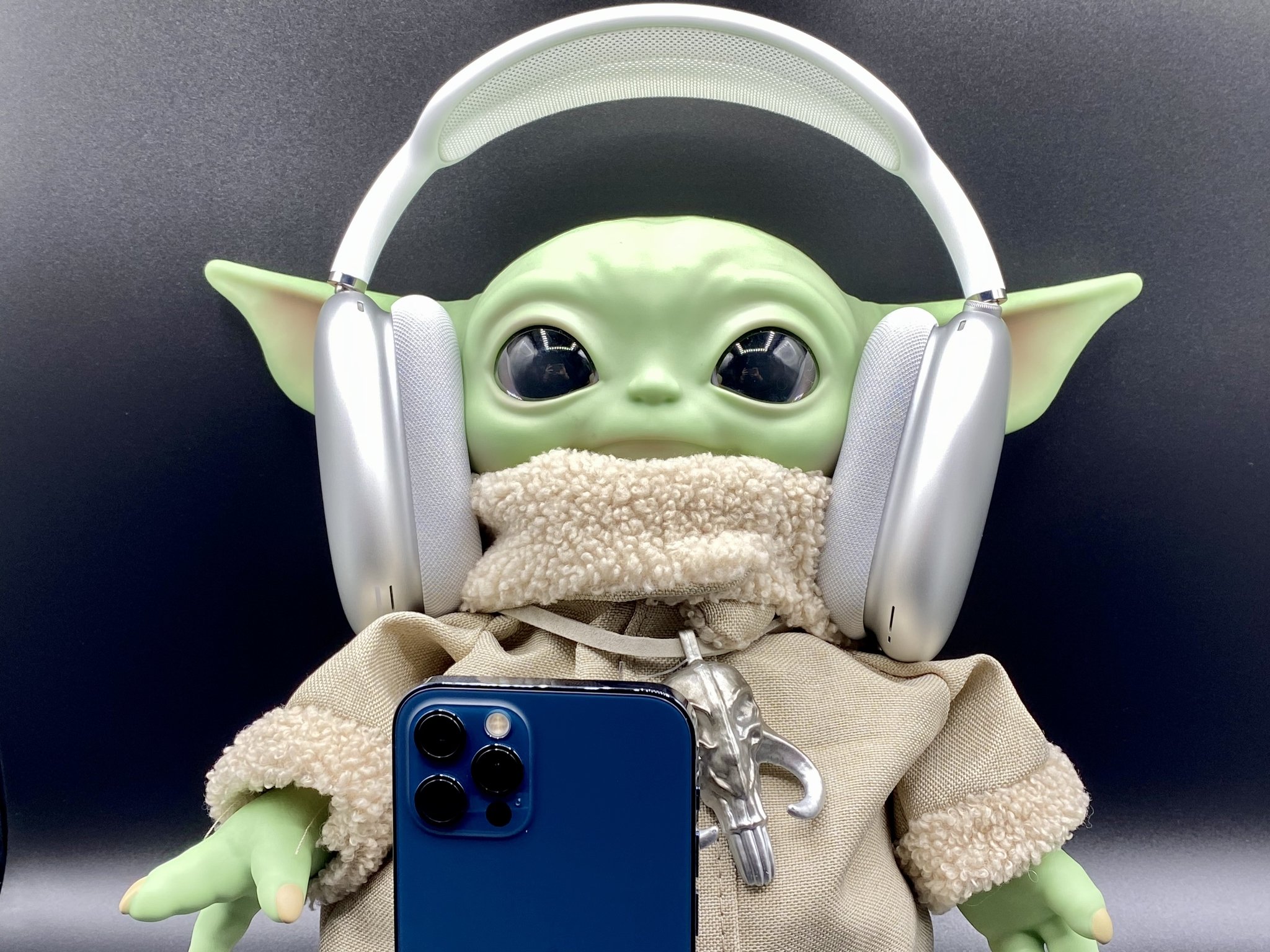

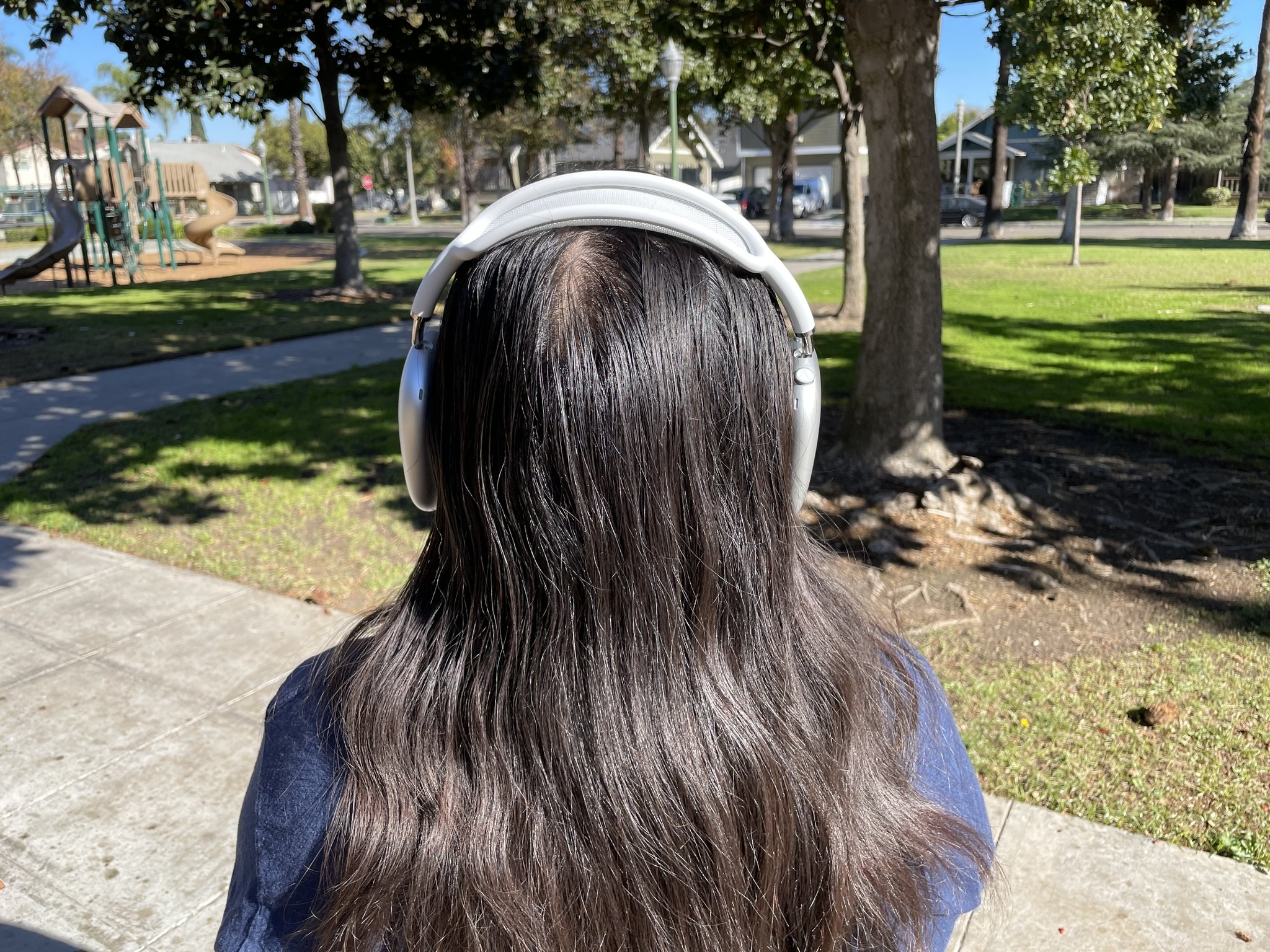
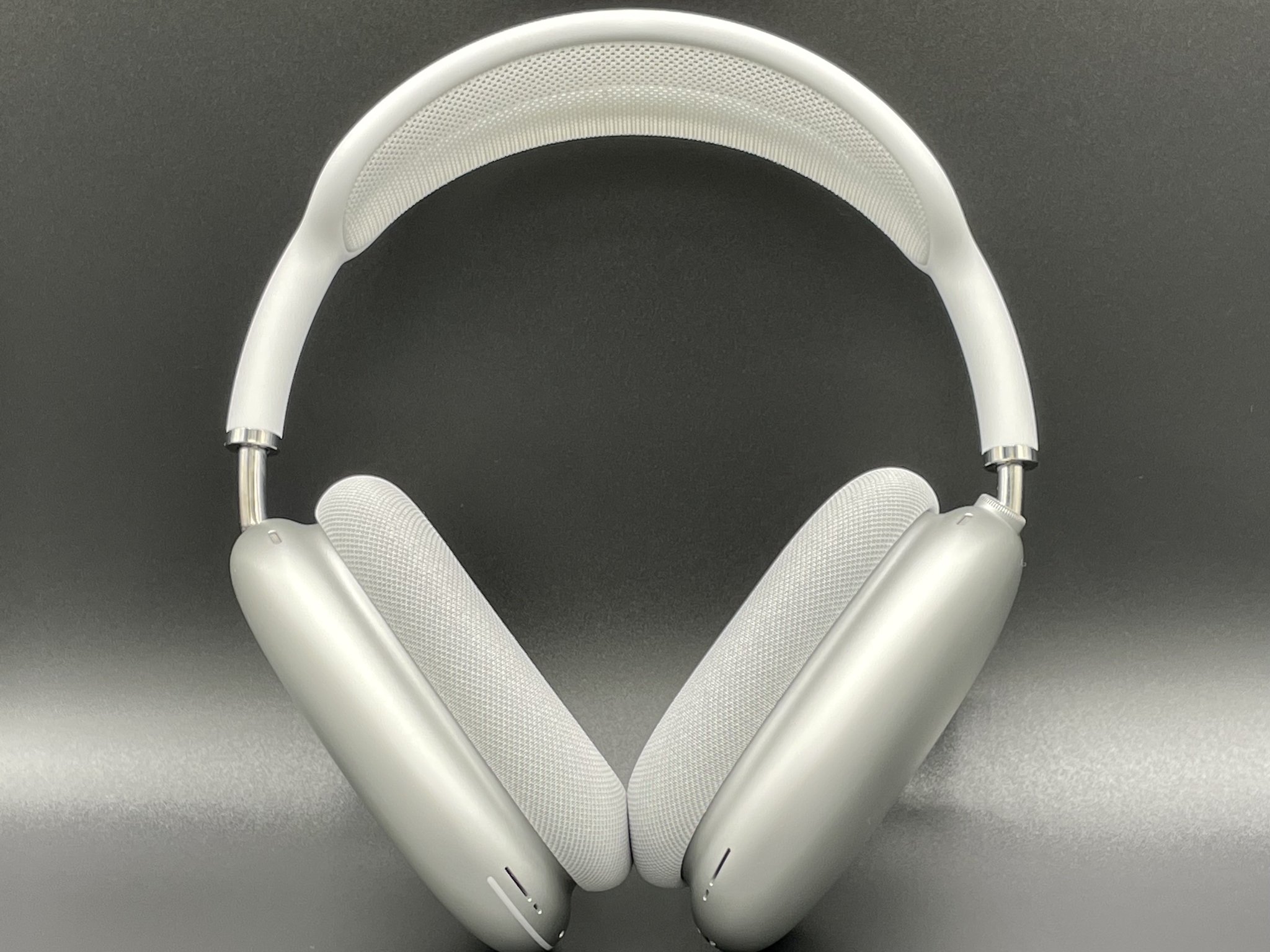

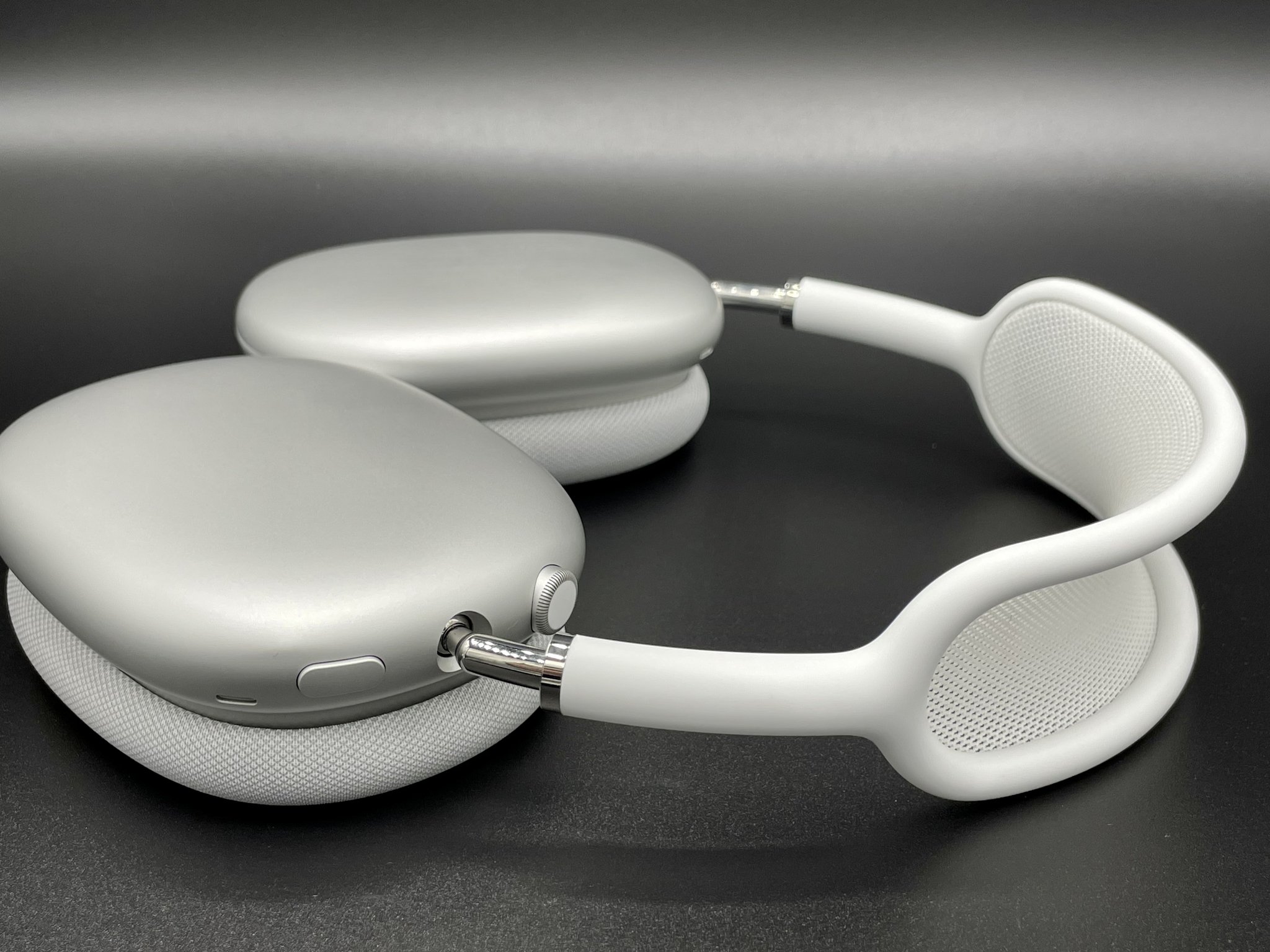
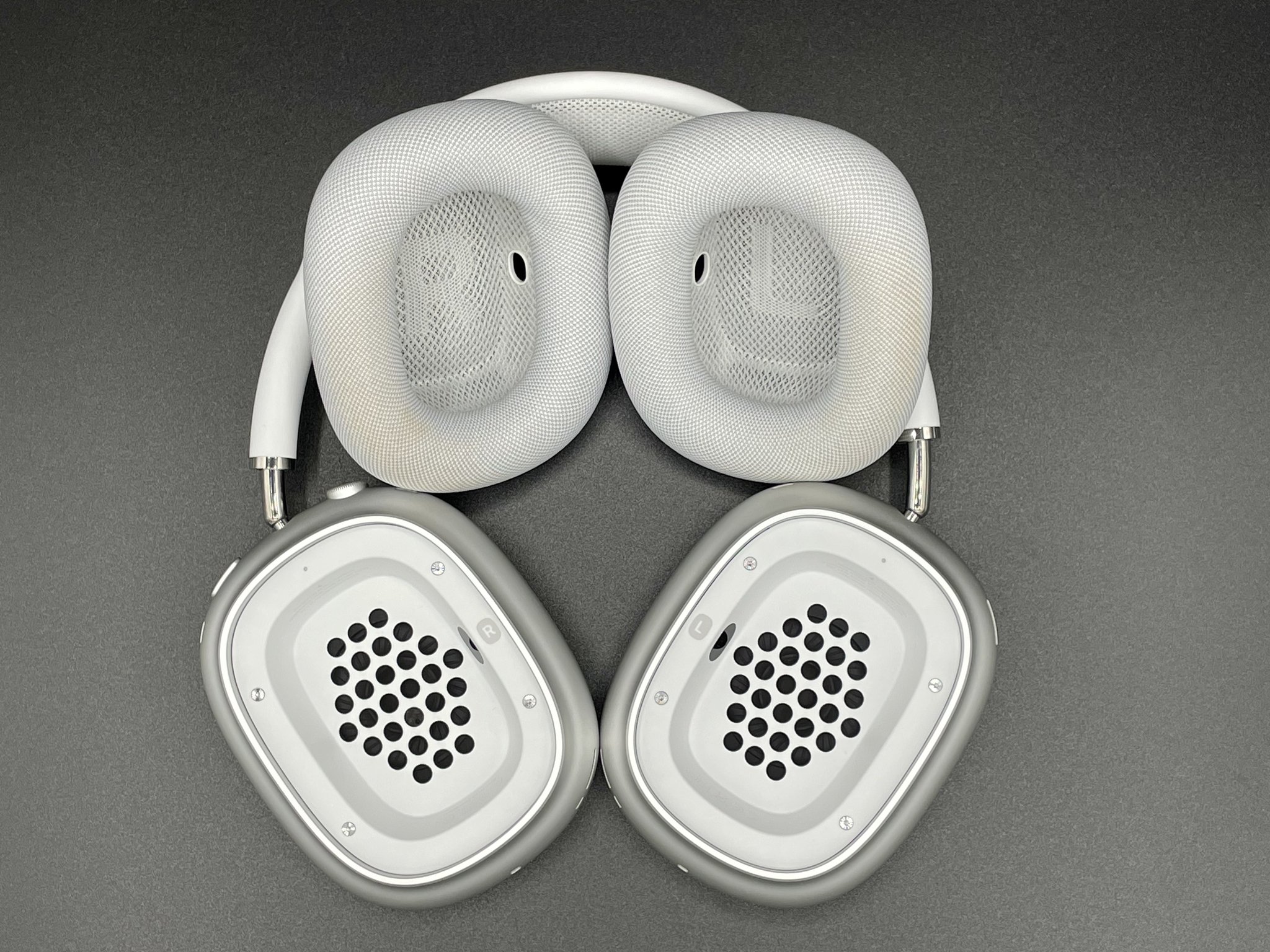
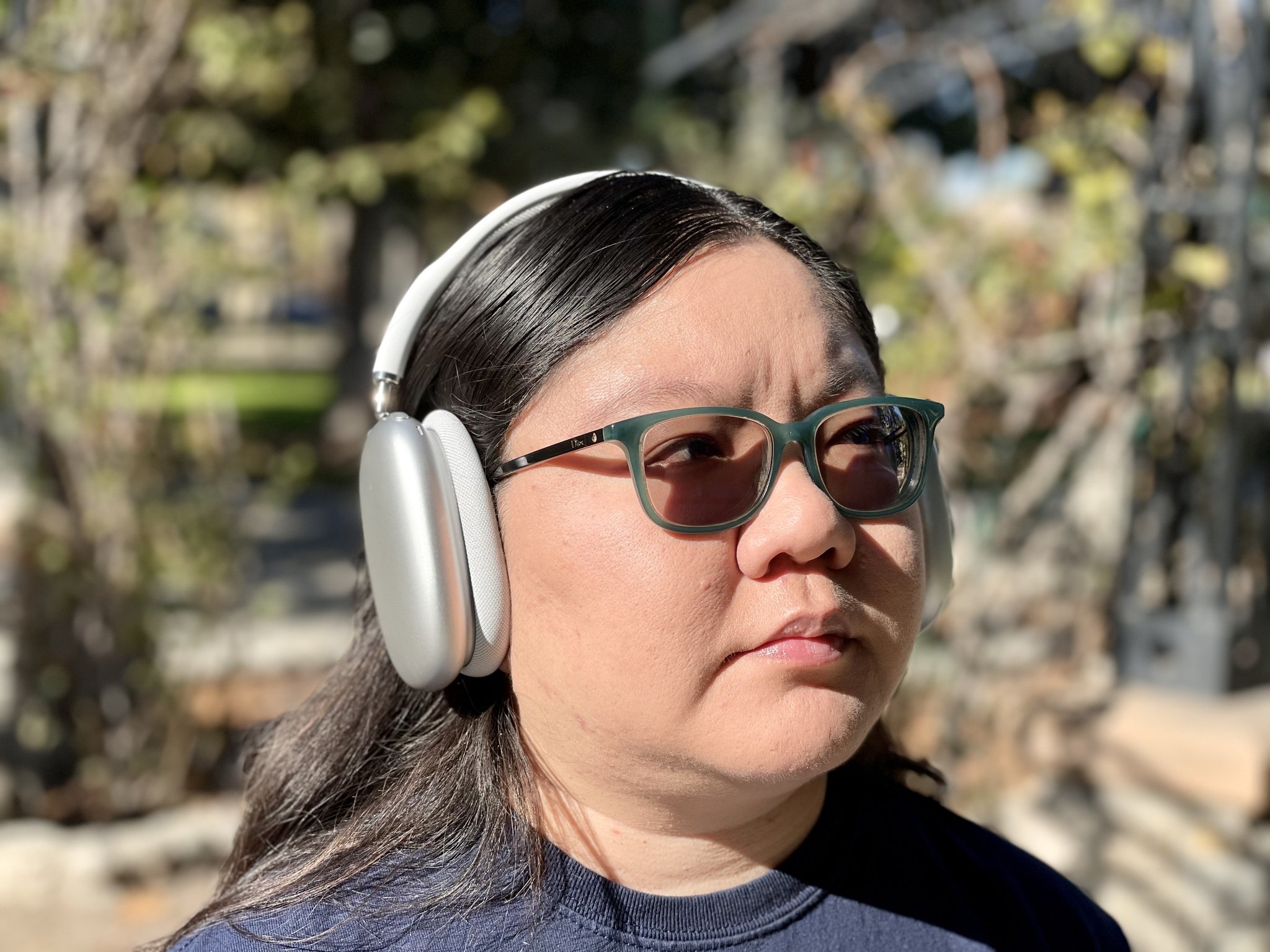
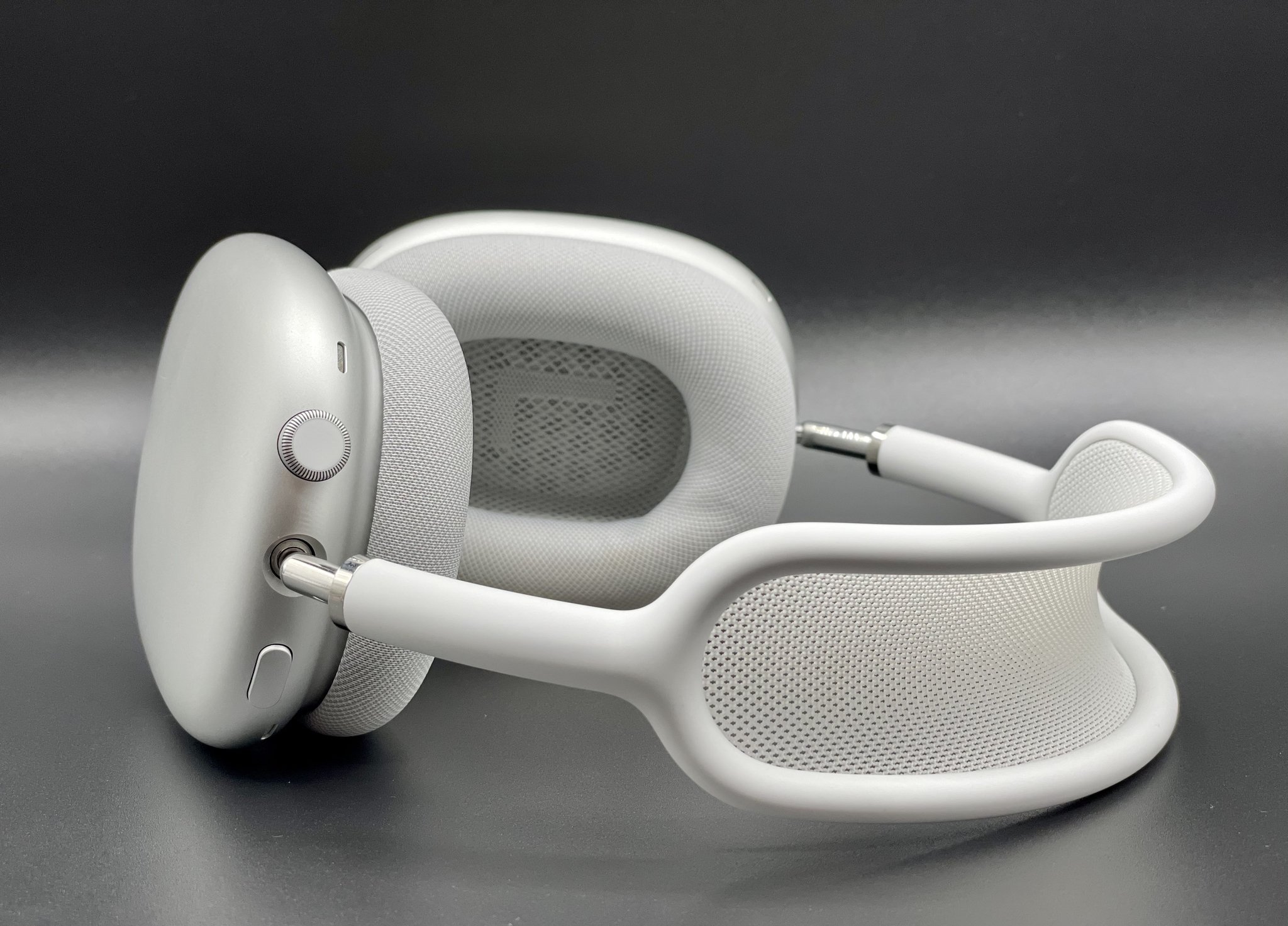
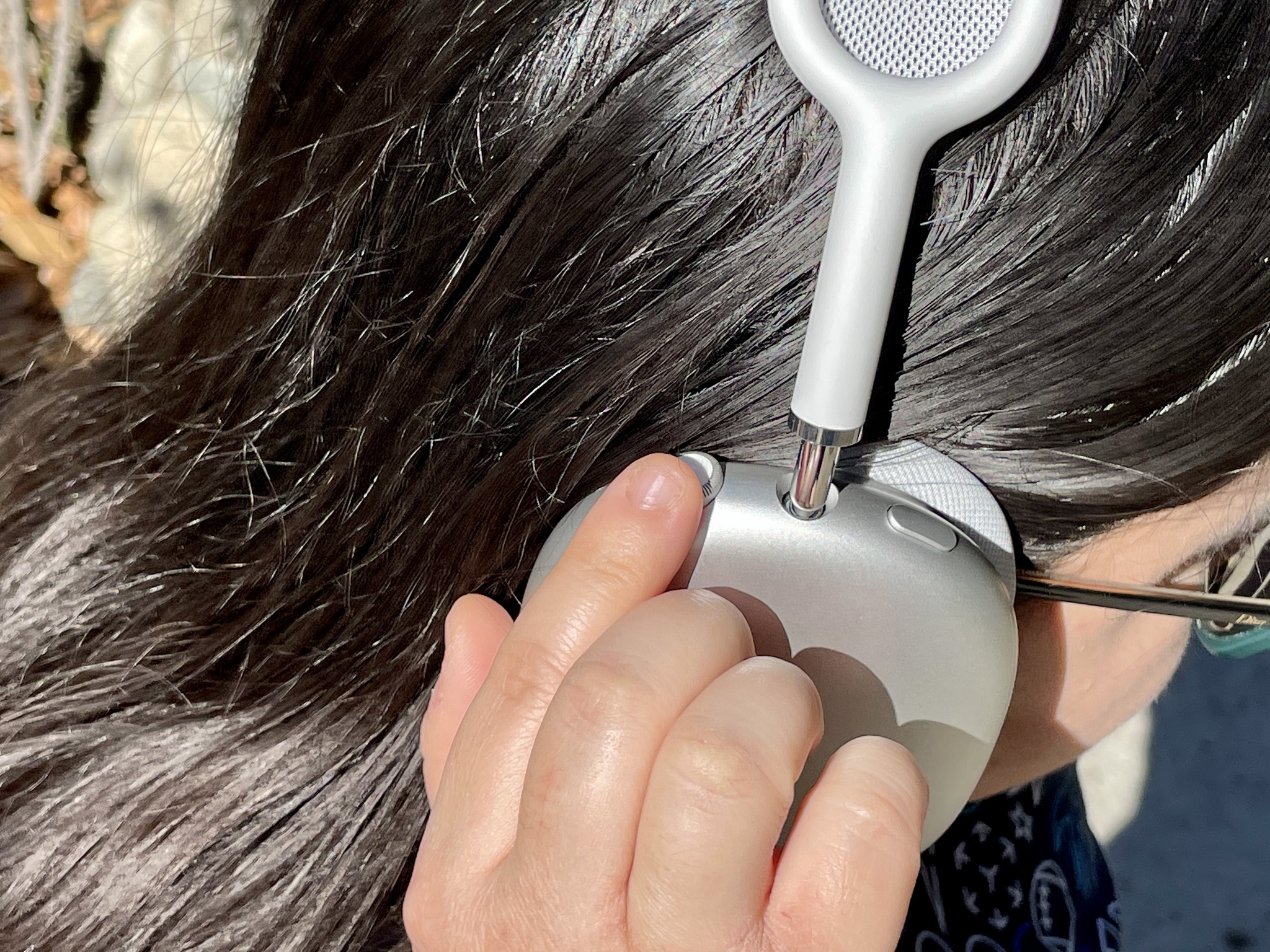


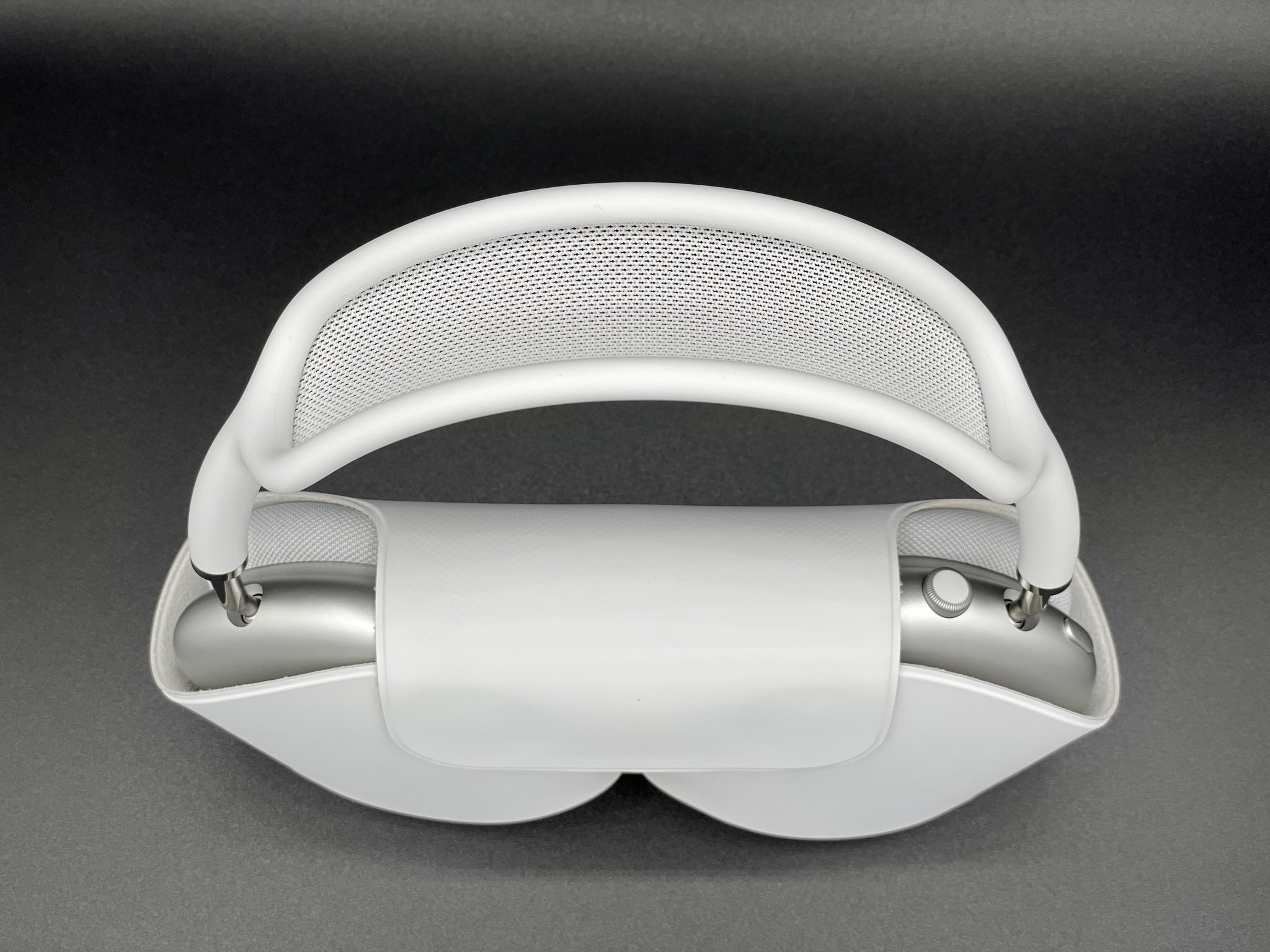
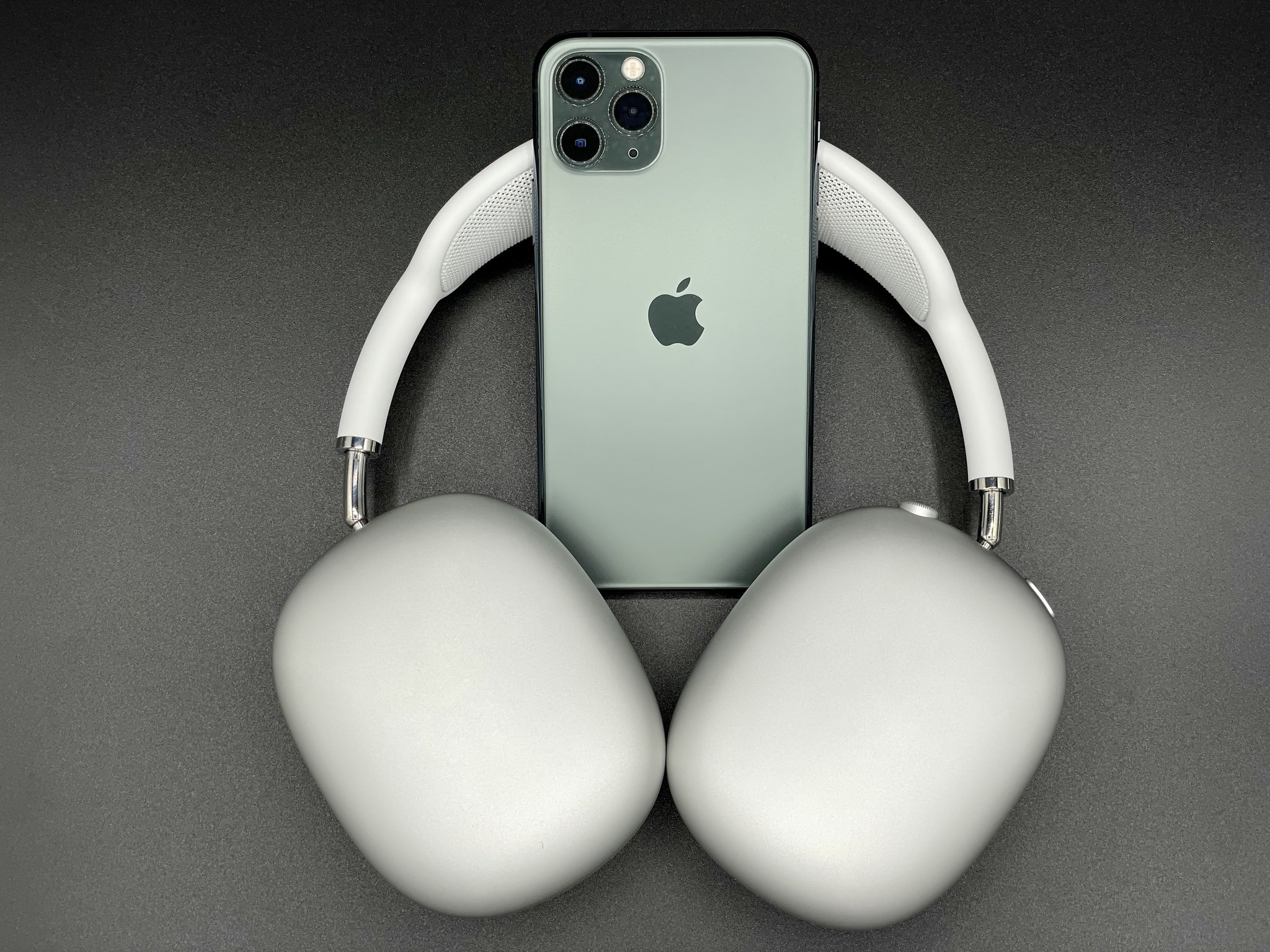
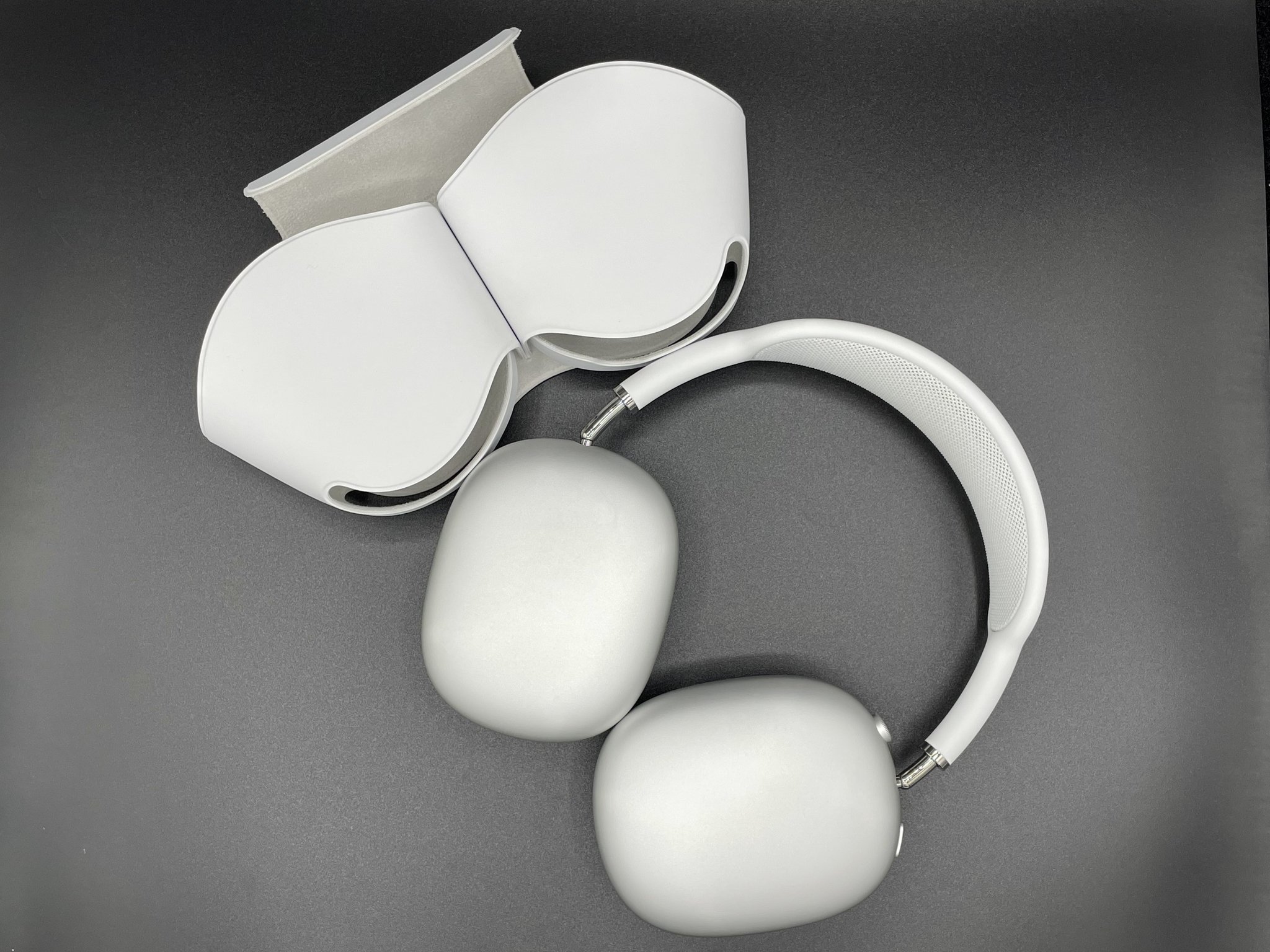
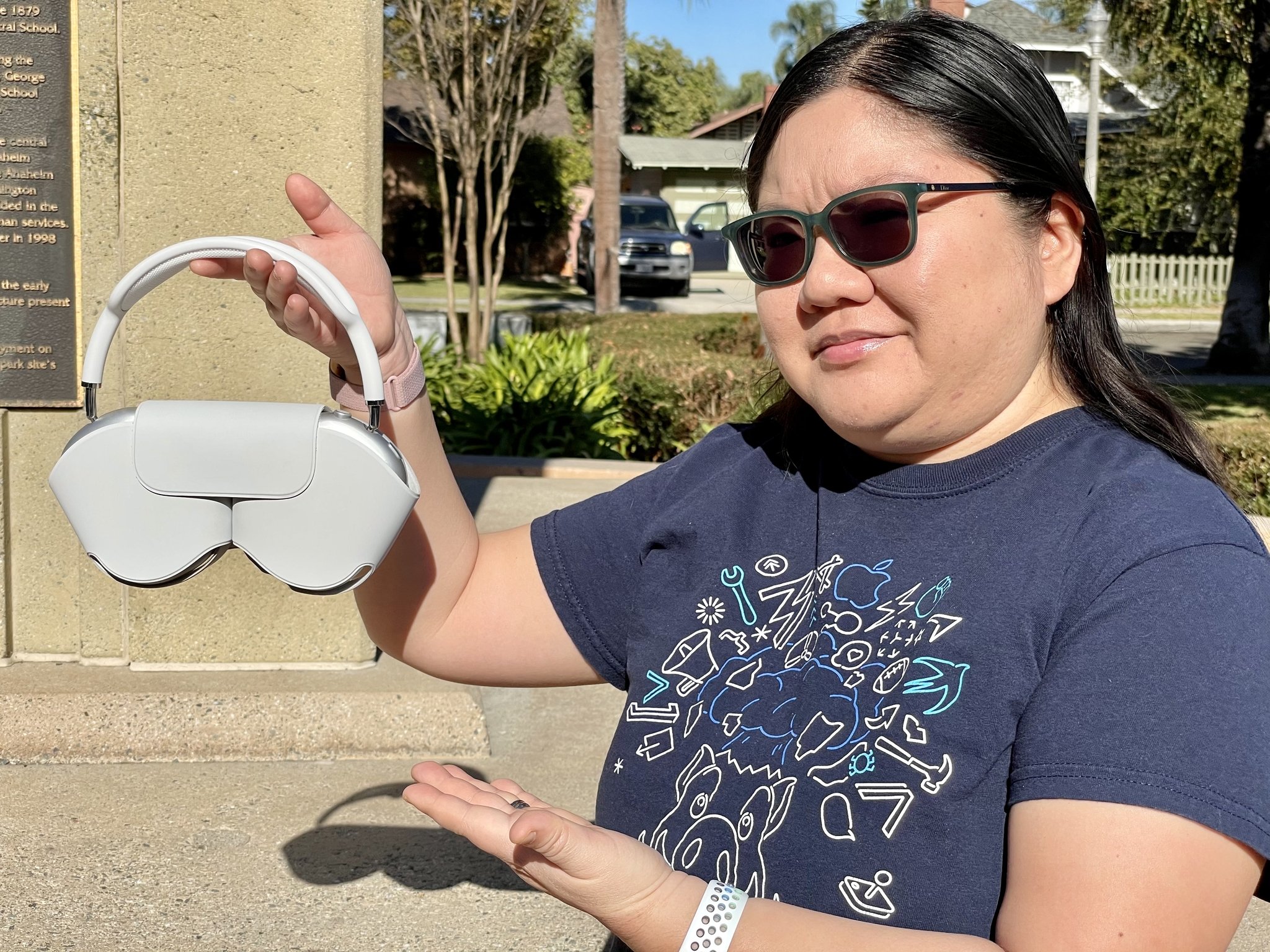

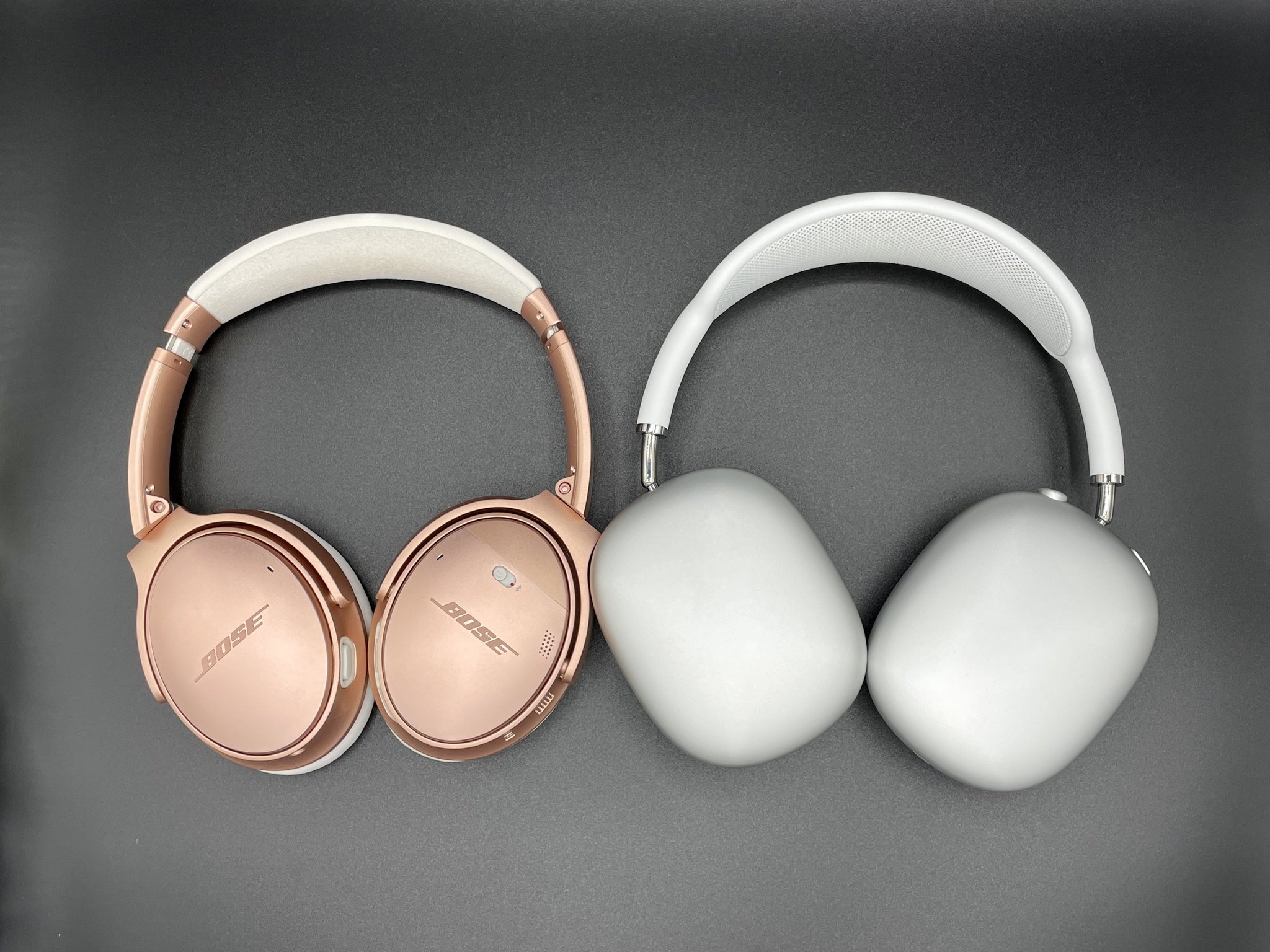
No comments:
Post a Comment